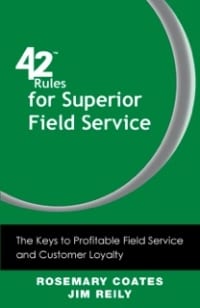 Have a recovery plan ready to assist customers when disaster strikes.
Have a recovery plan ready to assist customers when disaster strikes.
Disasters are going to happen, and you need to be prepared. In addition to natural disasters such as fires, earthquakes, floods, volcanoes, and hurricanes (referred to as force majeure), we also must be prepared for man-made events such as the terrorist attacks on 9/11.
Here are the things to consider when planning for or responding to any disaster:
- Highest priority: Check on your people—Is everyone accounted for? Are they safe? Do they need assistance? Can they help you service customers?
- Activate a command center and your emergency plan to manage the response.
- Determine who can assess the situation at the site(s). How will you communicate with them?
- Determine how quickly you can return to business. Was there damage to the facilities?
- Determine what it will take to get your service and your customers back up and running.
- Determine if you need to engage emergency partners. Do we have contract technicians available?
- Assess the availability of air transport. If not available, can you get trucks into the area? Do you have nearby spares depots?
- Determine if you need passes or permits to get into the area.
- Coordinate with local, state, and federal government agencies.
- Determine how customers will contact you. Do you have additional phone and Internet response people in place?
There are many scenarios in disaster planning, and you should be prepared for several kinds of responses. The response to a power outage or a severe storm is different from a terrorist attack. Your planning should include several types of responses, concentrating on those most likely to occur.
 Budgeting is also a very important component to your ability to respond. Be sure to engage executive management in advanced planning discussions regarding budgeting and decision-making authority delegation. When a disaster happens, you won’t have time to talk to the CFO about money or the COO about making operational decisions.
Budgeting is also a very important component to your ability to respond. Be sure to engage executive management in advanced planning discussions regarding budgeting and decision-making authority delegation. When a disaster happens, you won’t have time to talk to the CFO about money or the COO about making operational decisions.
Excerpted exclusively for SmartVan from the new book, 42 Rules for Superior Field Service, by Rosemary Coates and Jim Reily.

Share this: